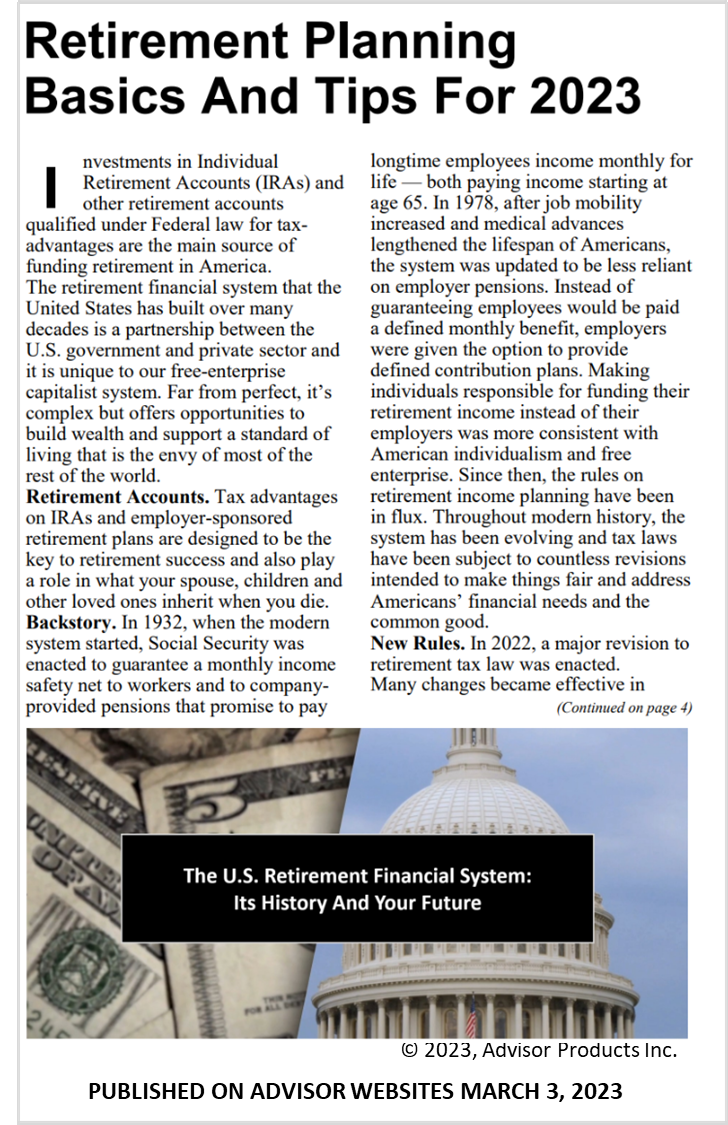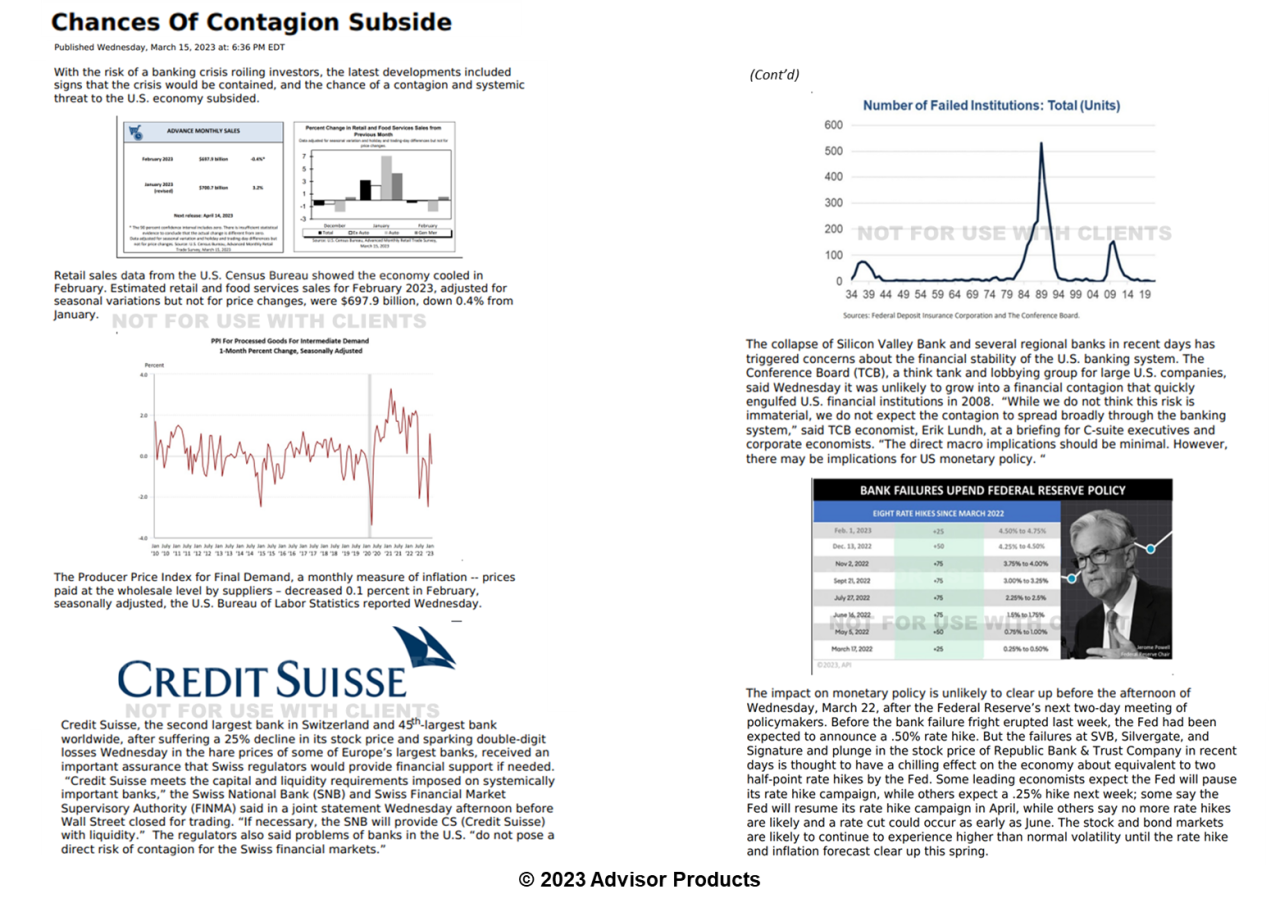- How it works
- Marketing Tools
- Competitive Research
- Finra-reviewed content
- Downloadable Content
- Advisor Education
- Advisor Websites
- Marketing Tips
- Crm Software Integration
- Search Engine Optimization
- Email Marketing Solutions
- Social media Marketing
- Advisor Marketing Videos
- Advisor Print Newsletters
- Advisor Lead Generation
- Expert Market Intelligence
- Branding and Print Materials
- Advisor Blogs
- Advisor Webinars
- Advisor Presentations
- Advisor Client Portals
- Webinars
- Advisor Google And Facebook Ads
- Advisor Public Relations
- About
- Resources
- Login
- Schedule A Demo
Marketing Tips
Search Engine Optimization
Learn the top factors that affect your search listings, tips for website construction, how to develop and organize SEO-friendly content, how to use Google My Business, and the importance of social media on SEO.
Email Marketing Tips
Learn about compliance, how to build your list, get suggestions on how to create a strong cam-paign, master the art of creating a powerful email, get tips on lay-out, learn how to create strong calls-to-action, and get subject line DOs and DON’Ts.
The Web Has Made It Much More Difficult To Discern Copycat Content From The Real Thing
Do a search on Google on any given day for “financial advisors” and read the “news” results that are returned. It’s a simple way of seeing content being produced by and about financial advisors. Do that search today and you’ll notice an unfortunate trend in content marketing for advisors.
Two posts near the top of the result are uncannily similar to each other but feature information about two different advisors.
A post by financial advisor Charles P. Boinske, CFA, is more in-depth and was published December 2 on ABCnews.com, while a very similar article posted on FOX News on December 3 under the byline of a reporter is published on Fox Business News.
The post is about five questions a consumer should ask an advisor before hiring him. The posts mention the same tips for consumers.
The Fox News story does not mention Boinske. In fact, it quotes an entirely different advisor.
Maybe it is a coincidence. Maybe the Fox News reporter just happened to come up with the same five questions to ask advisors and tips for consumers. I guess it’s possible. What do you think?
Rewriting an article written by someone else has been a practice in journalism for many decades and it’s okay to do as long as you give credit to the original author or add significant new information that the original article missed and that changes the article materially. It’s unethical to rip off someone else’s ideas without giving him credit. I say this because it also pertains to advisors, who are increasingly creating their own content.
Advisors who rip off other people’s content could open themselves up to professional sanctions as well as a legal judgment. You just cannot claim to have written something you did not write. You need to disclose if you are not responsible for the ideas in an article on your blog or you need to have supervised the writer who did actually write it.Putting your name on someone else's work is not a good idea for an IA rep who is required to fully disclose such matters.
A couple of weeks ago, I posted an open letter to the SEC Chair saying the RIA testimonial rule should be revised because it has become antiquated by the growing use of LinkedIn recommendations and Facebook "likes," and it is actually hurting consumers' ability to find the best advisors. A day later, a blogger at a financial advisor trade magazine said essentially the same thing I did without referencing my earlier article. It happens all the time, this kind of thing.
For advisors, the trend toward copycat content presents a moral challenge. With the explosion of content online, ripping off someone else’s good ideas is obviously much easier than writing about your own original ideas, and no one knows when a copycat ripped off your good ideas and is taking credit for them So if you blog about how anesthesiologists can write off equipment against in a clever and unusual way, for example, someone can rip off your idea and no one who reads a copycat's post will know.
For ethical advisors, it is a difficult situation. However, if you are truly focused on a niche market and continue to pound away at it with your own original ideas about how to help those target clients, I believe you will ultimately win. Ultimately, providing valuable information will differentiate you. A4A's booming membership and my history of producing content here in my home alone fopr people to discover using search and social tools has taught me that eventually good work gets recognized. But it is frustrating to see copycats borrow research and original idas in the meantime.
Questions?
How and why does the Advisor Products system work?
In today’s times, when consumers have become more demanding and tech-savvy, financial advisors must use content marketing to attract, inspire, engage, and convert their prospective customers.
A good content strategy is focused on developing and distributing consistent, valuable content to engage and retain prospective customers and target audience, via your website. Our content library provides financial advisors with fresh, high-quality financial content that is updated regularly, improving SEO along the way. And our automated e-newsletter and social media tools allow advisors to reach out to clients and prospects in an easy-to-use manner, providing frequent touch points for optimal brand building.
- Differentiate you from competitors
- Expose clients and prospects to your brand message more frequently
- Build an ongoing relationship with customers
- Increase your follows and fans on social media
- Drive more prospects to your website
- Help convert prospects into leads
- Increase number of pages indexed in Google
What products and services do you offer?
Can I buy services if my website is not hosted with you?
What can I expect during the onboarding process?
What if I have questions after my website is built?
Seeing is Believing.
See how easy it is to get started with our all-in-one digital marketing platform that drives leads, encourages referrals and increases client engagement.
SCHEDULE A DEMO






